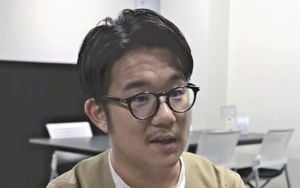Vietnam is at the forefront of significant developments and challenges related to artificial intelligence (AI), as the nation gears up to navigate the rapid technological evolution marked by notable advancements from both domestic and international players. Among these, the recent launches of innovative AI models like DeepSeek from FPT and Grok 3 from Elon Musk's company xAI highlight the urgency for Vietnam to adopt effective strategies for the responsible integration and regulation of AI technologies.
According to TS. Tô Văn Trường, a prominent AI expert, the integration of AI is pivotal as it fundamentally reshapes interactions across various sectors, ushering the country toward the Fourth Industrial Revolution. He recognizes the magnitude of AI’s potential, stating, "AI is shaping the foundation for a new future, with opportunities and challenges alike." This sentiment captures the dual-edged nature of AI, as its capabilities escalate, instigated by surging demands and the necessity for heightened efficiency.
AI technologies, with their unparalleled ability to process vast amounts of data and automate decision-making processes, can transform industries from healthcare to education, and from business operations to scientific research. The practical implementation of models such as DeepSeek is projected to stimulate operational efficiencies, automations, and refined digital systems within Vietnamese enterprises. Hà Quang Thái, AI consultant at FPT Digital, affirms this potential, noting, "DeepSeek can accelerate the application of AI processes within Vietnamese businesses, making them more competitive."
Yet, this technological advancement invites substantial regulatory attention. TS. Tô Văn Trường raises urgent concerns about the darker sides of AI capabilities—specifically, the risks of misinformation and behavioral manipulation through advanced AI systems. He points out, "Countries need transparent and clear legal frameworks to manage the risks associated with AI," emphasizing the necessity for regulations to prevent ethical breaches and misuse of technology.
To date, various global leaders have begun implementing regulations governing AI, marking the importance of guiding its application responsibly. For example, Europe has initiated rules to label AI-generated content explicitly to curtail misuse, raising significant inquiries about future governance structures and the societal ramifications of AI technologies. Vietnam, not yet at the forefront of AI, stands on the precipice of becoming a competitive player in the global AI arena—if it can efficiently approach the regulatory and development concerns surrounding this innovation.
From Thái’s perspective, the emergence of DeepSeek presents unique opportunities for Vietnamese startups. By leveraging this open-source model, startups gain access to cutting-edge technology without the extensive financial burdens typically associated with premium AI solutions. "We should see AI as not the goal but rather as a tool to resolve specific challenges within our businesses," Thái emphasizes, advocating for localized applications which hold practical significance for the domestic market.
Indeed, the case for AI regulation cannot overshadow its substantive advantages when implemented correctly. Using AI responsibly can facilitate data integrity and operational effectiveness, but without sufficient oversight, it can pose risks, leading to potential misinformation or societal disruption. The urgent need to balance innovation with regulation was echoed by TS. Tô Văn Trường, who stated, "Despite the vast potential, the regulation and directional oversight of AI's development is indispensable." The pursuit of progressive regulations should align with efforts to maintain the integrity and security of AI systems as they proliferate within society.
With the rapid development pace of AI, Vietnam is confronted with the choice of either lagging behind or seizing the moment to innovate. The emergence of potent entities like DeepSeek and powerful communicative models like Grok 3 indicates both the potential for transformational change and the necessity of strategic foresight. If enterprise leaders act swiftly to adopt AI, they could reshape the future of business within Vietnam, pushing for greater competitiveness on the global stage.
Nevertheless, the conversation surrounding AI development must remain grounded within the local realities of Vietnamese infrastructure and expertise. The national focus should be on refining the educational, technological, and regulatory frameworks necessary for fostering indigenous innovation without excessive reliance on foreign technologies.
While Vietnam may not yet boast the leading edge within AI innovation akin to giants like China or the United States, the potential remains considerable. Entities like FPT's DeepSeek signal the first steps toward establishing domestic AI solutions, aligning with broader economic and societal needs. "The biggest challenge isn't merely having a domestic AI model but ensuring AI effectively serves the businesses and communities of Vietnam," Thái argues compellingly.
Conclusively, the path forward necessitates timely investments not just in AI technologies but also in the framework guiding their development. It will take collective vision and policy-oriented leadership to transform Vietnam's AI potential from mere ambition to realized advantage.



